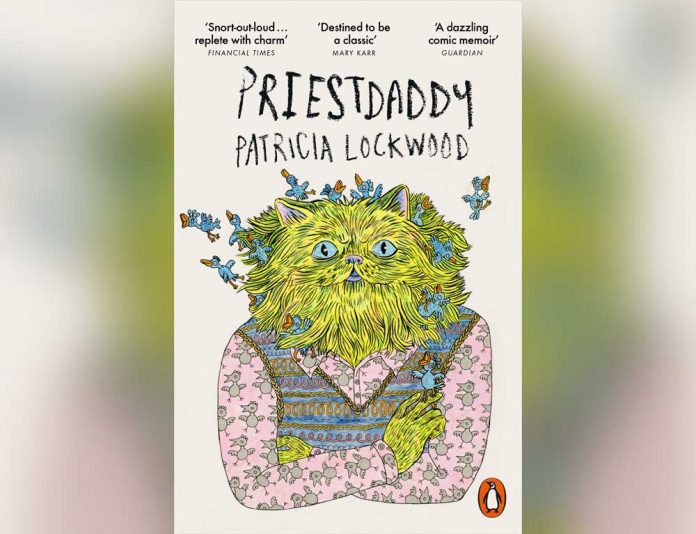Priestdaddy
Patricia Lockwood
Penguin Press, 2018
If Patricia Lockwood’s family had been normal, they still would have been highly unusual.
Lockwood, who had made her name as a poet before publishing the highly acclaimed Priestdaddy, is the daughter of a married Catholic priest, Father Greg Lockwood.
As she explains in this touching, sad, funny and beautifully written memoir, a minister from another denomination (Lutheran, in her father’s case) who converts to Catholicism can obtain special permission to be ordained. “He is allowed, yes, to keep his wife. He is even allowed to keep his children, no matter how bad they might be.”
Lockwood leaves home at 19, but after 12 years away, crippling medical bills bring her and husband Jason back to the family home for nine months. Lockwood is a keen observer of her family with the distance of those years, and muses on her childhood and adolescence.
Lockwood can be hilarious. She describes her father, whose wardrobe is either full priestly regalia, or embarrassingly transparent underwear at home: “My childhood was one long life drawing lesson, where Santa posed for us … His default position is a kind of explicit lounge … Like the worst kind of Jazzercise stretch you could ever imagine.”
When not lounging in his semi-transparent underwear, Father Greg Lockwood may be found coaxing bizarre noises from his guitar collection or cleaning his guns. This is, as her sister Mary declares, not a normal family.
This is also a memoir of pain, as in the author’s description of her adolescent depression (culminating in a pill overdose at age 16); her rape by a family friend (the subject of her poem “Rape Joke”); and her reflections on the sex abuse scandal that has rocked the Church, locally and globally.
This family may be strange, but it is loving. When Lockwood tells her parents about their dilemma, her mother responds simply: “Come home.” And so she and Jason do, and squeeze into her mother’s tiny sewing room, warmly welcomed.
While Greg Lockwood’s dress sense, parenting style and politics can be truly cringeworthy, Lockwood also makes clear his devotion to his vocation. “My father lounged horizontal at home, and sent us up and down the stairs to fetch for him, but when the call came at three o’clock in the morning, he was up and out the door without the smallest sign of protest.”
Lockwood’s memoir draws on ample material for both pathos and humour. Priestdaddy, like Father Greg Lockwood, never ceases to surprise, and is chock is full of heart and soul.
_______________
books@ssh.com.au





